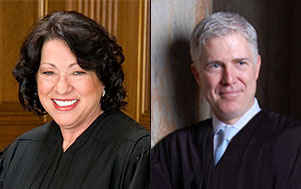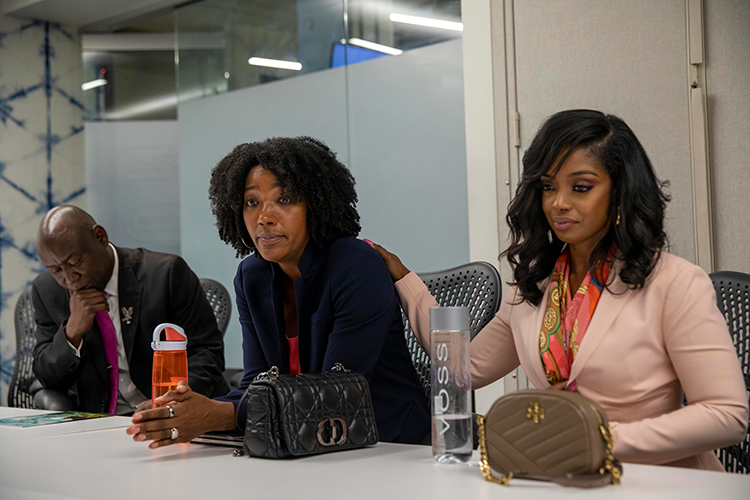Sotomayor joins Gorsuch in dissent from cert denial in drunken driving case

Supreme Court Justices Sonia Sotomayor and Neil M. Gorsuch. Photos courtesy of the U.S. Supreme Court.
Justice Neil M. Gorsuch dissented on Monday when the U.S. Supreme Court denied certiorari in a drunken driving case that involved a confrontation clause issue.
Gorsuch’s dissent was joined by Justice Sonia Sotomayor. The pairing may seem unusual, but confrontation clause cases don’t always break along conservative and liberal lines, SCOTUSblog points out. The late Justice Antonin Scalia was a staunch defender of criminal defendants’ right to confront their accusers.
The arrested driver in the case, Vanessa Stuart, had alleged her Sixth Amendment rights were violated when a state analyst at her trial estimated her blood-alcohol level while driving based on the results of a blood test hours after her arrest. The analyst who actually performed the test did not testify, and Gorsuch believed the omission was a constitutional violation.
“The state effectively denied Ms. Stuart the chance to confront the witness who supplied a foundational piece of evidence in her conviction,” he wrote.
Gorsuch said the Supreme Court’s most recent “foray in this field,” the 2012 opinion Williams v. Illinois, had “sown confusion in our courts across the country.” There were four competing opinions in Williams, and no majority opinion. “I believe we owe lower courts struggling to abide our holdings more clarity than we have afforded them in this area,” he wrote.
Gorsuch said that forensic evidence increasingly plays a decisive role in criminal trials. The evidence can be manipulated, and it can be subject to error and contamination. “To guard against such mischief and mistake and the risk of false convictions they invite, our criminal justice system depends on adversarial testing and cross-examination,” he wrote.
The state of Alabama had argued there was no need for testimony by the expert who prepared the report because the document was provided as a basis for the testifying analyst’s estimate, rather than to prove its assertions were true. Gorsuch disagreed with that argument.
“Why would any prosecutor bother to offer in evidence the nontestifying analyst’s report in this case except to prove the truth of its assertions about the level of alcohol in Ms. Stuart’s blood at the time of the test?” he wrote. “The whole point of the exercise was to establish—because of the report’s truth—a basis for the jury to credit the testifying expert’s estimation of Ms. Stuart’s blood-alcohol level hours earlier.”
Gorsuch also disagreed with Alabama’s alternate argument that there was no Sixth Amendment violation because the report wasn’t testimonial in nature. Gorsuch said the report was prepared when Stuart was in custody, and it was prepared for the primary purpose of securing her conviction.
“However you slice it,” he said, referring to the court’s differing opinions in Williams, “a routine postarrest forensic report like the one here must qualify as testimonial.”
The case is Stuart v. Alabama.



